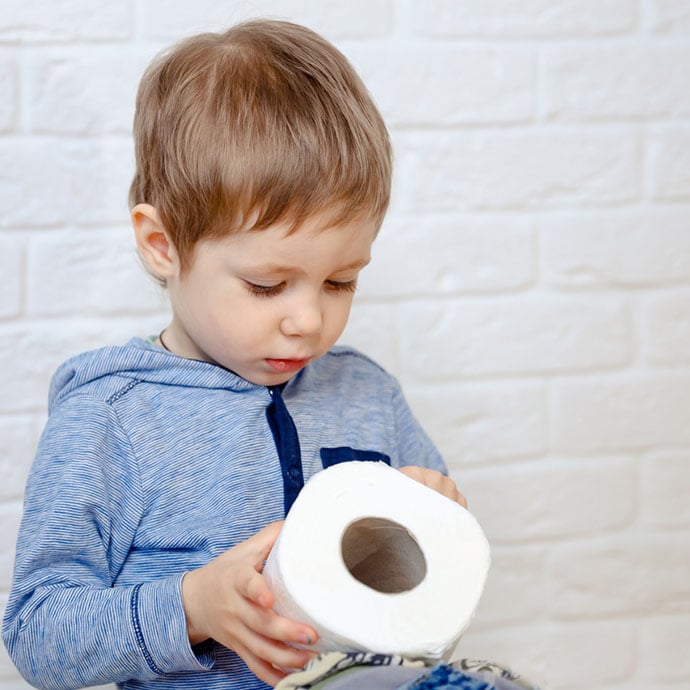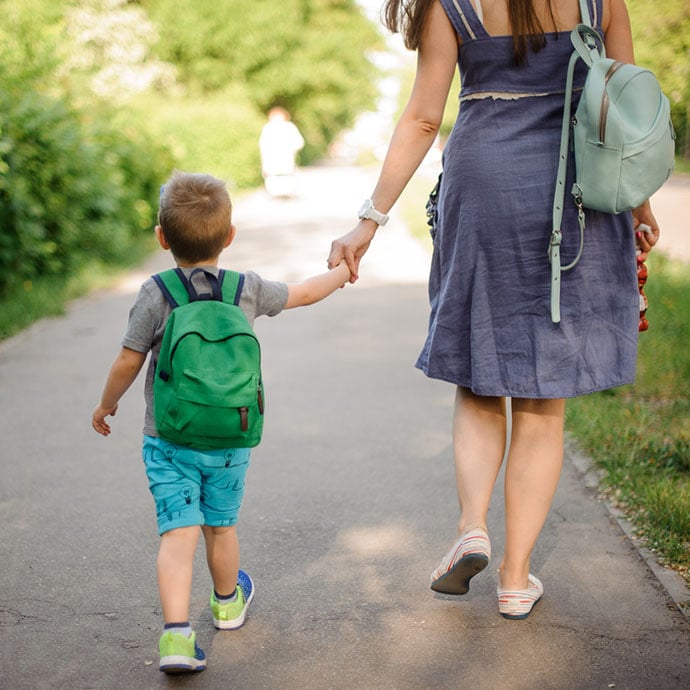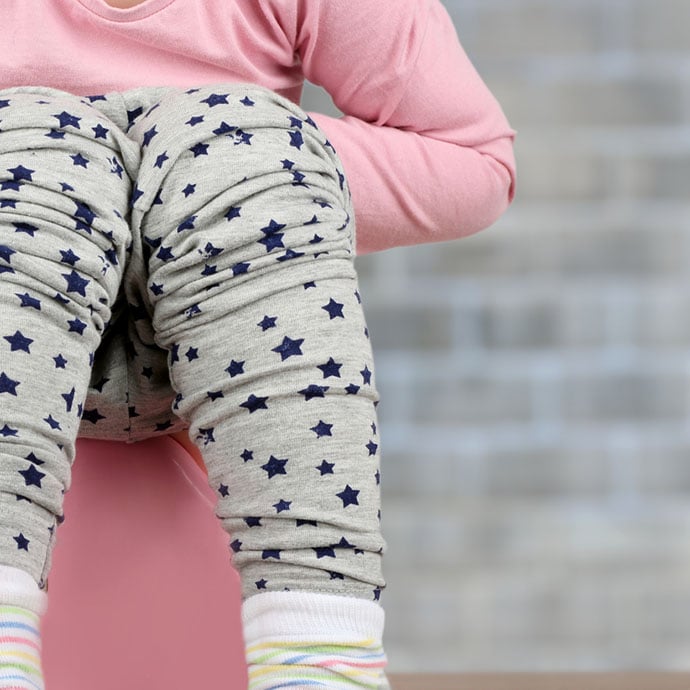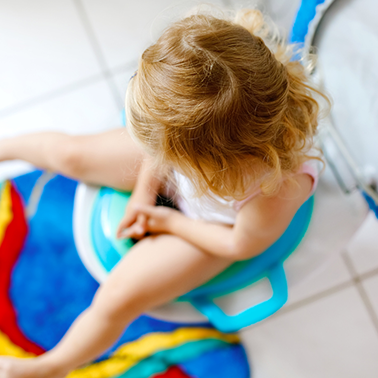What is potty training regression and what causes it?
Why is it that a child, who’s been potty trained and happily using the loo for some time, starts wetting themselves, and/or the bed again? This is referred to by the experts as ‘potty-training regression’, and it’s more common than you might think.
The experts define potty training regression as when a child has successfully negotiated potty training and has been dry both during the day and the night for several months, but then starts to either wet themselves and have accidents in the day or wet the bed at night.
Potty training regression doesn’t refer to a single incident, which might happen at any point for a child. Instead, potty training regression refers to when there is a pattern of your child regularly being unable to wait to go to the loo.

What can parents do to help with potty training regression?
All the advice given is that the best thing parents can do to help with potty training regression is help support their child and offer a happy, supportive home environment.
When a child feels ashamed or worried about their potty habits, they can become worse rather than better. Trying to analyse and pinpoint the reasons for potty training regression is also very helpful and can help you avoid making the same mistakes in future.
So, if your potty trained toddler has suddenly started having accidents, here’s a reminder:
1. Be encouraging and supportive
Never punish your child for an accident, not even in the middle of the night when you are, understandably, exhausted. It doesn’t matter how long potty training takes, stay calm, be positive, and ever encouraging.
2. Have a schedule
Set daytime reminders on your phone for your child to use the loo. Soon they will start to recognise the signs that they need to go and ask for the loo or go by themselves. Make sure you ask childminders or teachers to follow the same routine.
3. Go back to basics
Start your potty-training routine again, both to help your child if they weren’t ready before and remind them what’s needed and expected of them.
4. Have potties handy and have clear routes to the loo
There’s nothing worse than getting caught out, so have an easy and clear route to the toilet, plus potties in strategic places – the kitchen, garden, the car and at relatives’ homes.
5. Use Huggies® Pull-Ups® to give them confidence again
They’re great for daytime use to give that independence back to your child and help them re-gain their confidence. Easy to pull up and down, there’s a learning layer that will remind them that it’s time to go, without the fear of having to sit in wet clothes. At bedtime, give your child DryNites® Pyjama Pants to wear so that they can stay dry at night, sleep well and not have to worry or stress about wetting the bed.
Why is my potty-trained child regressing?
When a potty-trained child regresses, it’s important to try to understand why:
Potty training too early
It’s possible that some parents rush to get their child potty trained before they start at nursery. If the familiar things – their own home, potty, parent and routine – are suddenly missing, your child may not be able to make sense of needing to ask for or to use the potty when they are in a different environment, such as their nursery or a childminder’s house.

Your child wasn’t fully potty trained
When you have trained your child successfully, they will want to use the potty, and will ask for it. Take things back to basics and start again or leave it a while until you feel your child is ready.
They are stressed or unhappy
At times of emotional upheaval, children can show their feelings in many ways - and one is by having accidents. If there’s something stressful happening, from starting school or nursery to a new baby, be extra supportive of your little one and try to anticipate their potty needs.
They’re just tired
Broken nights, missed naps, and busy days can leave your child feeling exhausted. This can lead to more accidents.
They have a health problem
If there is a health condition that is unsuspected, this can cause a child to wet themselves. Visit your GP to rule out physical problems.
They get too involved with life
Some kids are dreamers, some get so involved with play that they forget all else, while others just leave it too late to tell a parent they need the loo. Try to encourage your little one to take regular toilet breaks.
They are anxious about using the loo
Let’s face it, some toilets are scary places, especially public loos, where there are loud sounds of doors banging, toilets flushing and hand dryers going off unexpectedly. Some children are just scared of using the loo, fearing monsters, and getting flushed away. Try to work out if this is the case.

When should I visit the doctor with potty training regression?
As always, visit your GP if you think there may be a medical reason why your child is having accidents. These include constipation, painful urination which might indicate a UTI, peeing after laughing or coughing, being constantly thirsty or another physical symptom that something’s not quite right.
Remember that the best thing you can do when your child has a problem is to sit down with them, have a cuddle and have a chat. Ask them about their potty-training experiences, find out if something is worrying them and make sure they get plenty of your undivided attention, hugs and kisses.
Your go-to resource for life’s little accidents
Remind yourself how to read the signs, how long it takes and the kit you need with our complete guide to all things potty training.


 your parenting partner
your parenting partner